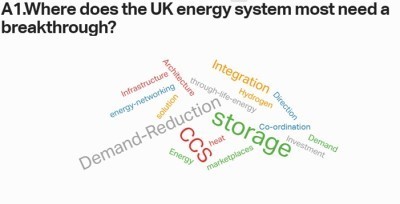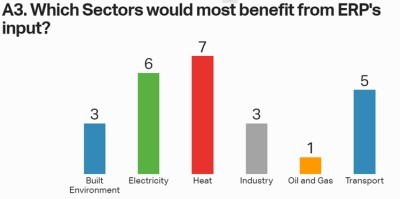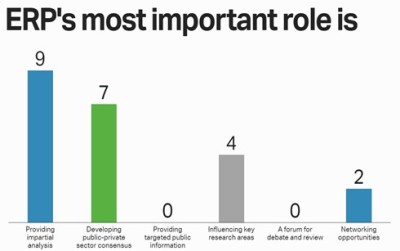ERP Newsletter – May 2015
ERP Member Profile: Masao Chaki, Hitachi Europe Ltd
Hitachi Europe Ltd was welcomed as a Member of ERP in January 2014 with Chief Researcher, Masao Chaki put forward as the organisation’s representative.
Since joining, Hitachi has been involved in two of ERP’s more recent projects – Social & Political Barriers to Uptake: Community Energy and Cities. Masao, who has held the position of Chief Researcher for the Transportation, Energy and Environment Research Laboratory, at the European R&D Centre since October 2013, states that:
“Joining ERP has allowed staff from Hitachi Europe Ltd to participate in discussions on a wide range of energy-related topics that are of interest to our company. Topics such as Community Energy, Cities and Smart Energy are of interest because Hitachi is working on a wide range of energy sector projects from nuclear power plants to Transmission & Distribution and energy management. Hitachi therefore brings a unique perspective to the ERP in terms of both energy and ICT business. Being a member of the ERP has also allowed us to provide input and balance to key project work by taking part in the Steering Group sessions. I believe ERP is most beneficial for surveying important areas and making strategies for future R&D to enable us to achieve efficient and consistent power generation and distribution systems that also reduce loads on the environment.”
Hitachi Europe Ltd is a subsidiary of Hitachi Ltd and is headquartered in Maidenhead, UK. The company is focused on its Social Innovation Business – delivering innovations that answer society’s challenges. Hitachi Europe and its subsidiary companies offer a broad range of:
- Information & Telecommunication systems
- Rail systems
- Power and Industrial systems
- Industrial Components & Equipment
- Automotive systems
- Financial services
- Others with operations and Research & Development Laboratories across Europe, the Middle East and Africa.
Masao joined the Energy Research Laboratory, Hitachi Ltd in 1993 from the University of Tokyo with a PhD in Nuclear Engineering. Fifteen years within R&D in the energy sector means he has gained extensive research experience and knowledge in areas suchas Boiling Water Reactors (BWRs) and coal fired boilers, mainly in the thermal-hydraulics technical field.
In 2008, Masao was moved to Hitachi-GE Nuclear Energy Ltd  where he took part in the Japanese national project to develop the next generation Light Water Reactor (LWR). In 2011, he was then moved back to the Hitachi Research Laboratory, Hitachi Ltd. as Manager of the Department of Nuclear Systems Research and led the research on the safety of Boiling Water Reactors.
where he took part in the Japanese national project to develop the next generation Light Water Reactor (LWR). In 2011, he was then moved back to the Hitachi Research Laboratory, Hitachi Ltd. as Manager of the Department of Nuclear Systems Research and led the research on the safety of Boiling Water Reactors.
Project Spotlight: Cities
Question: Will cities, not utilities, dominate the energy landscape?
The ‘Big Six’ Utility Companies have 93% of the UK electricity market share but it wasn’t always this way.
Go back to the beginning of the last century and your local authority was very likely to be your energy provider too – a system where local tax-payers funded energy generation through the creation of municipal energy companies. As time went on, the desire for economies of scale, coupled with nationalisation drove consolidation of energy generation to a nation-state level – a system that was then privatised, resulting in  a handful of multi-national energy utilities that now dominate the landscape, owned by shareholders not citizens.
a handful of multi-national energy utilities that now dominate the landscape, owned by shareholders not citizens.
With policy uncertainty and the scale of capital assets that need to be replaced, innovating away from high-carbon generation hasn’t been easy for the centralized utilities – but new technology brings disruption. The declining price in renewable technologies in conjunction with some long-term policy objectives might mean renewables owned by communities, schools, small businesses and private individuals generating substantial proportions of electricity in the future. Superimposed on this is the increased desire for UK cities to become more autonomous for a multitude of reasons which are motivated by both cities themselves and central government. This situation has presented both customers and entrepreneurs alike with a compelling motive to identify more alternative energy solutions, which offer more attractive value propositions for wider society.
ERP have recently initiated a project on Cities. At the heart of the Energy Research Partnership’s (ERP) research agenda in this area are two key questions:
- How well do we understand the gap between the energy aspirations of UK cities and the regulatory / policy frameworks, processes and factors which are needed to make those aspirations a reality?
- What are the wider implications of greater decentralised generation in the UK energy system and the consequences for the UK’s centralised utility model and the regulatory environment?
The project involves a steering group and project team that comprises: Atkins, Shell, Arup, Energy for London, Imperial College London, the Energy Saving Trust, Innovate UK, the Economic and Social Research Council, Hitachi, Welsh Government, Ameresco, and Ofgem.
Between the members of the Steering Group comes a range of energy technology and systems expertise across a range of technologies including organisations which have international experience in developing, financing and realising the non-traditional business models for energy generation.
Complementary expertise is provided by policy makers and regulatory members with their understanding of the decarbonisation agenda and present licensing initiatives.
The team is also working with academics that have been modelling and assessing what a decentralised energy system model might look like in the UK – including the technologies that would have to be realised and the possible regulatory architecture. All participants are passionate about better understanding this potentially important development on the future of UK energy system in order to identify the positive and negative implications.
Key messages are being developed with a view to presenting findings to Members at ERP’s plenary meeting in July 2015.
For information about the Cities work, please contact Mark Workman from the ERP Analysis Team.
ERP Analyst’s View on… CO2-Enhanced Oil Recovery (EOR)
The North Sea is in a state of flux, with declining oil production and increasing activity to identify storage sites for CO2 that could be captured from power generators and industry. The two sectors may not be mutually exclusive, as the North Sea could offer a rich, long-term opportunity, providing storage sites for CO2 but also the potential to extend the life of the oil industry and create sustained wealth for the UK economy.
ERP’s project in this area is looking at the potential to use CO2 for Enhanced Oil Recovery (CO2-EOR) and how it could interact with the development of capture and storage of CO2 (CCS).
It will explore whether the revenues from the additional oil extracted could facilitate the development of a CO2  transportation and storage infrastructure, which could be mutually beneficial. Furthermore, CO2-EOR could open up additional CO2 storage capacity. Importantly, however, care is needed to ensure that extracting more oil from these existing fields is carbon efficient.
transportation and storage infrastructure, which could be mutually beneficial. Furthermore, CO2-EOR could open up additional CO2 storage capacity. Importantly, however, care is needed to ensure that extracting more oil from these existing fields is carbon efficient.
The UK’s CO2 emissions will need to be more actively planned and managed in future decades if the UK is to meet its challenging decarbonisation targets. Most scenarios see Carbon Capture and Storage (CCS) as critical to the energy and industry sectors in sequestering their CO2. Understandably, much of the focus has been on establishing storage for CO2 with less attention given to the use of CO2 for EOR. Given the maturity of the UK North Sea in its oil and gas production phase, as highlighted in The Wood Review, now is the right time to explore the potential rejuvenation opportunity offered by CO2-EOR.
CO2-EOR has been used in the USA for onshore EOR for 40 years. At the end of 2014 SaskPower in Canada started the world’s first CCS power plant, with a nearby oil field buying the CO2 to use for EOR. The offshore environment in the UK is more challenging and the economics will differ, as the processing plant has to be added to the platforms and the cost of drilling injection wells increases. However, there is good understanding of the geology of the North Sea oil fields and assessments have been made of the potential for CO2-EOR.
The ERP project is looking at the technical and commercial viability of CO2-EOR, including the amounts of CO2 that could be stored and the volume of oil that could be recovered. But this is dependent on the supply of CO2 from capture plants and the development of a transport infrastructure that will match the demand. Detailed analysis will be needed to see how using CO2 for EOR will interact with pure CO2 storage, so as to understand the commercial arrangements that will be needed. Revenues from the additional oil recovered could be used to stimulate the development of the CO2 management industry in the North Sea.
Government intervention will be needed and ERP will look at the different business models and policy levers that could be used to encourage its development.
For more information on the CO2 EOR project, please contact Richard Heap from the ERP Analysis Team.
Guest Focus: ITRC – The Infrastructure Transitions Research Consortium
In early December 2014, ERP worked closely with the UK Infrastructure Transitions Research Consortium (ITRC) and other organisations to deliver a workshop that considered Energy & Water Infrastructure Sector Interdependencies.
The workshop received participation from regulators, water and energy industry members, academics and policy-makers and found that there is a need to develop a strategic direction on UK infrastructure interdependencies work and to explore how best to coalesce the related themes, with bottom-up input, in the various fora. To find out more about the workshop (including presentations), please visit the ERP web page and view the final report here.
The UK Infrastructure Transitions Research Consortium (ITRC) is a consortium of seven UK leading universities funded by the Engineering and Physical Sciences Research Council (EPSRC). They collaborate closely with more than 40 partners in government and business to fully understand the infrastructure challenges they face, and incorporate the knowledge into the models and databases developed by the consortium. These models and databases are clustered into a fully integrated tool called National Infrastructure Systems Models –NISMOD, supported by accessible reporting and visualisation capabilities. The ITRC partners are crucial in advising on the design of the models and on the validation of the results; in return, partners have access to the analysis output to inform their policy and business decisions in the long term under uncertainties in changing economic, demographic, technological and climatic scenarios.
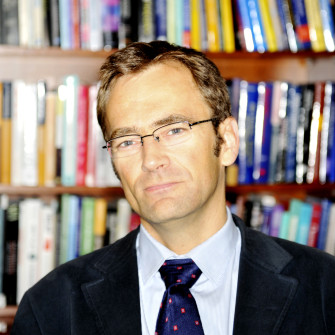 The consortium is under the leadership of Prof Jim Hall, Director of the Environmental Change Institute at the University of Oxford. Jim explains that: “Over the last four years the team have developed and demonstrated a national infrastructure planning model for thinking and testing a long-term strategic approach to infrastructure provision capable of integration across the energy, transport, water, waste and ICT sectors, and across all of Britain. For the first time, we have produced system models to analyse national infrastructure in the long-term, and developed robust evidence-based strategies to identify vulnerabilities and adapt to risks”.
The consortium is under the leadership of Prof Jim Hall, Director of the Environmental Change Institute at the University of Oxford. Jim explains that: “Over the last four years the team have developed and demonstrated a national infrastructure planning model for thinking and testing a long-term strategic approach to infrastructure provision capable of integration across the energy, transport, water, waste and ICT sectors, and across all of Britain. For the first time, we have produced system models to analyse national infrastructure in the long-term, and developed robust evidence-based strategies to identify vulnerabilities and adapt to risks”.
Examples of ITRC’s work includes:
- A collaboration with Infrastructure UK (a department of HM Treasury) to analyse the UK National Infrastructure Pipeline (NIP), consisting of around 550 infrastructure projects with a budget of circa. £438 billion for the next decade. The primary aim of the collaboration is to analyse IUK’s pipeline of infrastructure investments and explore alternative longer term strategies.
- A previous collaboration with IUK to develop models of interdependent failure in national infrastructure networks and use them to demonstrate hotspots of national infrastructure criticality and the economic consequences of systemic failure to assist in managing current and future assets and services.
- Work with National Grid on Spatial modelling of renewable Technologies to embed generation capacities and customer demand projections in the national grid in the long-term to 2100. The company will incorporate the output into their own Future Energy Scenarios forecasting models to provide a demand allocation, by area, for different technologies and scenarios.
- A collaboration with Network Rail to assemble a range of datasets to build a picture of interdependent railway infrastructure and its vulnerabilities, with a focus on interdependencies with energy provision and distribution in conditions such as extreme flooding.
The first phase of the ITRC research enabled a revolution in strategic analysis of national provision in the UK, and the team is now proposing a next generation of systems models and analytical techniques, starting early in 2016. These intend to radically extend capability by:
- Downscaling ITRC’s pioneering representation of national networks to the UK’s 25.7 million households and 5.2 million businesses, representing the infrastructure services they demand and the multi-scale networks through which these services are delivered.
- Upscaling from the national perspective to incorporate global interconnections via telecommunications, transport, energy and other resource networks.
- Across-scaling to other national settings outside the UK, where infrastructure analytics and planning represents a huge business opportunity for the UK.
The closing conference of the 2011-2015 phase of ITRC will be held at the Royal Academy of Engineering on 15 October 2015 when ITRC’s tools, results and impacts will be presented and discussed. If you wish to attend this conference, please contact Miriam Mendes at ITRC.
To find out more about the organisation, please visit the ITRC website.
ERP Activities Update
Five new ERP publications due out in summer 2015 (as listed in the current & ongoing projects section below).
One of these is Community Energy & The Low Carbon Transition, which Executive Analyst Simon Cran-McGreehin has been working on. Simon says:
“ERP’s report on Community Energy is due out in June 2015. The report considers how community involvement can be a means of delivering change in the energy sector, and how we can learn more about its potential role in the UK. There are examples from around the UK and from other countries in which community energy has delivered benefits, including: new energy sources with less local opposition; area-wide improvements to buildings’ energy efficiency; community level balancing of supply and demand; and greater interest in debates about energy. Projects have also delivered other benefits to communities and society more broadly, including: income streams to fund local services; training and employment; improved health of residents; and greater community cohesion and population retention.
There is a need to better understand the role and impacts of community energy in the UK, and to determine whether it warrants changes to policy and regulations to address challenges that it faces. At present, community energy is a fairly small sector in the UK, and the report recommends providing community energy groups with more guidance and advice for developing their own abilities, but also by allowing community groups to delegate certain tasks (e.g. administrative or legal) to other organisations. The report recommends gathering more information about existing projects, and improving the way impacts are predicted and proposed projects are assessed. It also proposes trials of community energy, through partnering with companies that want to conduct trials of new technologies and services, and through trailing alternative regulatory and market arrangements.”
For information on the Community Energy report, please contact Simon Cran-McGreehin from the ERP Analysis Team.
A list of ERP’s current & ongoing projects are listed below and include the five publications due out soon:
- International Engagement
- Cities
- CO2-Enhanced Oil Recovery
- Resource Use Strategies – Minerals & Nexus / Interdependencies
- Community Energy & The Low Carbon Transition – due to be published June 2015
- Heating Buildings: Energy & Emissions – due to be published June 2015
- Smart Energy – due to be published summer 2015
- Energy Options for Transport – due to be published June 2015
- Managing Flexibility of the Electricity System – due to be published June 2015
Recent sessions at ERP Plenary Meetings
In January 2015, Scott Cain – Chief Business Officer from the Future Cities Catapult provided a guest presentation at the ERP Plenary meeting on the remit and objectives of the Catapult’s work. Current work within the Catapult includes: Sensing Cities – changing how cities are monitored and measured using sensor network and Cities Unlocked – which blends technology and user-centered design to make cities easier to navigate.
Also in January 2015, at ERP’s Post-Plenary Meeting, previous Shadow Energy Minister, Tom Greatrex MP gave a speech on ‘The long-term prospects for a transition to a low carbon economy and how to achieve it…’ Prior to this session, a panel discussion was held with meeting attendees to discuss: ‘What are the top energy and climate policy priorities for an incoming government?’ ERP would like to thank the panel Members that took part in this session:
- Martin Grant, CEO Energy, Atkins
- Professor Jim Skea, Research Councils UK Energy Strategy Fellow
- (attendance in an independent capacity)
- Doug Parr, Chief Scientist, Greenpeace UK (attendance in an
- independent capacity)
- Philip Sellwood, CEO, Energy Saving Trust
- Dame Sue Ion, Nuclear Expert, Royal Academy of Engineering (attendance in an independent capacity
“Where does the UK Energy System most need a breakthrough? This was one of the questions discussed at ERP’s most recent plenary meeting in April 2015, as part of an Interactive Session where ERP Members discussed topics such as: The UK Energy System and ERP’s Role, Future Project Ideas and Impact.
Questions posed for Members to vote on included:
Conferences & Workshop updates:
Energy & Water Interdependencies workshop: In December 2014, The Energy Research Partnership (ERP), UK Water Research and Innovation Partnership (UKWRIP), The Infrastructure Transition Research Consortium (ITRC) and the University of Bristol Systems Centre brought together energy and water industry practitioners, and representatives from governmental and regulatory bodies to interact with academics working on research-led tools and models to better understand interdependencies.
Participants prioritised the need for a forum to provide a platform for the identification of synergies, the consolidation and exchange of knowledge, and concerted action between sectors.
The forum would:
- Enable the cross-sectoral exploration for the benefits of using a systems approach to modelling demand and capacity of interdependent services for the substantial rationalisation of investment, risk limitation and robust infrastructure performance;
- Provide a means to inform implementation of effective policies at a government level; and
- Provide development of an effective cross-sectorial brokerage service.
Next steps include a series of targeted, smaller sessions with specialist participants focused on specific topics within the scope of the high level themes. Read more about ERP’s Resource Use Strategies Project and related Interdependencies workshop.
Other News
 Nick Winser CBE, Chairman of the new Energy Systems Catapult:
Nick Winser CBE, Chairman of the new Energy Systems Catapult:
ERP Member and previous Executive Director of National Grid, Nick Winser CBE has been appointed as Chairman of the new Energy Systems Catapult which will be located in Birmingham.
Nick is also currently:
- Chair of National Grid Gas and National Grid Electricity Transmission and;
- President of the European Network of Transmission System Operators for Electricity
ERP would like to thank Nick for his support and input both as an ERP Member and as a Co-chair between 2010 and 2012, and wish him every success for the future.
The Women’s Engineering Society – MentorSET programme:
The MentorSET programme from The Women’s Engineering Society (WES) is a mentoring scheme that has been running since 2002, with a number of unique advantages primarily (but not exclusively) for women in engineering.
The Women’s Engineering Society is seeking to re-launch the MentorSET scheme and to help do this, is seeking sponsorship from interested organisations.
It is crucial to increase the numbers of women in engineering, and one way of doing this is to retain women engineers once they have qualified. Mentoring is an important element of this – it will ensure support for female employees, give access to training and career progression opportunities, and help overcome hurdles such as career breaks that can otherwise prematurely terminate their engineering career.
For further information about the scheme, to disseminate amongst your organisations, or to become a sponsoring partner, please email Shivani Katyal at DECC, for initial expressions of interest.
Change of address for ERP:
In April 2015, ERP moved into new offices on the Imperial College Campus, stones-throw away from our previous location.
Our new address (please update your contact lists) is:
ERP, 3rd Floor, 11 Princes Gardens, South Kensington, London, SW7 1NA
Goodbye & thank you to secondee Tom Watson:
 Tom Watson joined ERP Analysis Team in November 2014 as a secondee from the Policies Studies Institute (PSI) for 5 months to assist with Phase 1 of the Energy for Transport project. This first phase provided a high-level examination of the options for powering each mode of transport and examined competing objectives and trade-offs. Tom presented Phase 1 of the work to ERP Members at our plenary meeting in April 2015 – this will be available as a publication in June 2015.
Tom Watson joined ERP Analysis Team in November 2014 as a secondee from the Policies Studies Institute (PSI) for 5 months to assist with Phase 1 of the Energy for Transport project. This first phase provided a high-level examination of the options for powering each mode of transport and examined competing objectives and trade-offs. Tom presented Phase 1 of the work to ERP Members at our plenary meeting in April 2015 – this will be available as a publication in June 2015.
ERP’s Executive Analyst Simon Cran-McGreehin will soon be initiating Phase 2 of the work which will use the work in Phase 1 to develop high-level scenarios, with the aim of producing an overview of the ‘best uses’ of particular energy resources for use in the transport system.
Welcome to Mathilde Bourgeois – ERP’s new part-time Administrator:
Mathilde Bourgeois joined ERP in February 2015 to provide the team with a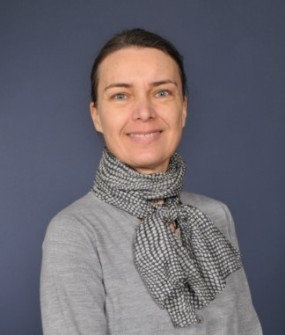 dministrative support and event coordination.
dministrative support and event coordination.
Prior to this, she held a long tenure as Administrator & Event Coordinator for an international business group in Abu Dhabi, U.A.E. After moving to London in 2011, she worked for the School for Social Entrepreneurs in a variety of functions including their extensive recruitment process for Lloyds Banking Group Social Entrepreneur Programs (Start up, Scale up).
And finally…Join us on Twitter and LinkedIn:
Following the launch of the new ERP Website in November 2014, ERP has officially joined the world of Social Media.
Please make contact and follow us on Twitter #erpuk_info or on LinkedIn.


